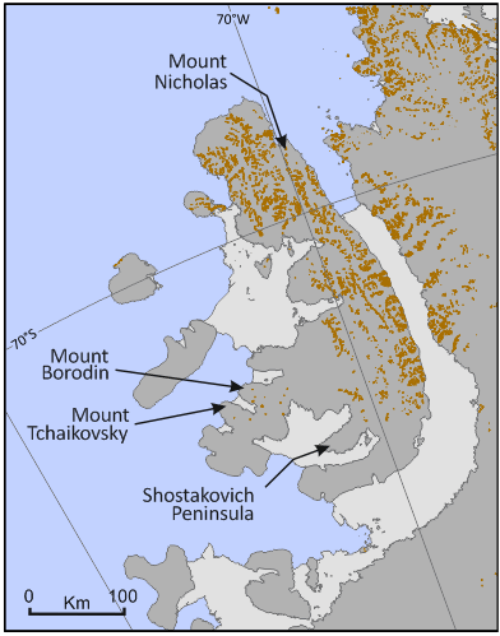2017 is the centenary of the Russian Revolutions; the first of which took place in March 1917. The “February Revolution” actually began on March 8th and culminated in the abdication of the last Tsar of Russia, Nicholas II on March 15th, ending over 300 years’ rule by the Romanov dynasty.
Key figures of Russian history are represented in Antarctica, many of whom are associated with Alexander Island, named after Tsar Alexander I who despatched the Russian Antarctic Expedition in 1819. Mount Nicholas (69° 21′ 56″ S, 69° 51′ 10″ W, Alexander Island), is named after the ill-fated Nicholas II. It was first seen by the French Antarctic Expedition in 1909 and surveyed by FIDS in 1948.
Other names associated with Russian history highlight its rich culture, including composers Tchaikovsky (Mount Tchaikovsky, 71° 22′ 27″ S, 73° 14′ 36″ W), Shostakovich (Shostakovich Peninsula, 72° 10′ 59″ S, 71° 19′ 59″ W) and Borodin (Mount Borodin, 71° 36′ 11″ S, 72° 37′ 38″ W). These are located alongside the names of other notable composers in this area.
